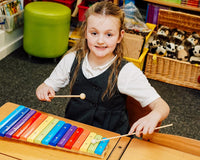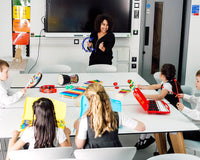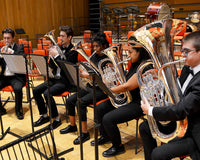Learning an instrument is always an interesting and fulfilling journey. There are loads of important lessons along the way. However, many of those lessons come through hindsight. Your teacher may be trying to encourage certain practices and you’re unable to see their value just yet. With some understanding of how keeping certain practices in your routine are beneficial, you’ll be less inclined to skip them. Here are 6 things I wish I knew when learning the piano:
1. Have a Balance of Pieces For Your Level and More Advanced Pieces
I used to shock my teacher at lessons; bringing pieces that were sometimes two or three levels beyond my capability! It’s so important not to get too far ahead of yourself. There is no point only tackling pieces that are too far out of your reach to master. It may take you months, or even years to truly complete. Make sure you have a variety of difficulty when it comes to the pieces you are working on. This way you will always be pushing yourself while still allowing a break from the strenuous pieces.

2. Practice Scales, Chords, and Arpeggios
This is one of the most important practices, but is perceived as tedious by so many students! This will be your key to developing skill and dexterity – as well as developing your ear. Try implementing these at the start of a practice routine – before you dive into any pieces. Observe how it changes and improves the way you play your repertoire. Trust me – it works!
3. Having a Disciplined Practice Schedule
It’s so important to keep your practices regular and short enough that you can extract knowledge out of the session. Having a long, two-hour session twice a week is not going to suffice. Practicing for 20 minutes daily will be far more beneficial. Giving you time to digest any new information your brain has processed and refreshing that regularly is key!
 4. It’s Not All About the Notes
4. It’s Not All About the Notes
This lesson took me a long time to understand. Being able to play the notes successfully is hardly what playing the piano is about at all. Here’s something my teacher used to repeat incessantly: “I would rather you make repeated mistakes, but play it with feeling!” You don’t want to sound like a robot; implementing dynamics and expression is so important in bringing a piece to life! The key to doing this successfully is by focusing on expression; not tempo.
Play the piece as slow as you need to bring out the articulation and expression as marked on your music. In fact; exaggerate this as much as possible to really grasp this layer of the music first.
5. Work Your Sight Reading Skills
When you’re only concentrating on a few pieces – you quickly commit them to memory. You’re no longer reading the music anymore.While memorizing music is a skill in itself, it causes your sight-reading to weaken. This is a fantastic skill to always keep sharp. If you don’t have a dedicated sight-reading practice book, that’s okay. Consistently use brand new pieces that are a few levels below you and focus on just the sight-reading aspect.

6. Use The Right Gear
When I was just beginning, I had no idea if the piano I was choosing was right for me. There are plenty of things you need to consider when buying your first piano. Ending up with a piano with a reduced number of keys, no touch response, and semi-weighted keys can have a drastic impact on your future piano playing. On the other end of the spectrum, you always run the risk of spending way too much on your first piano. Luckily, there are plenty of great guides available that can help you navigate this terrain.
Using these tips will allow you to develop your skills as a pianist much quicker. Try them out and see how they change your skill and technique!
If you'd like to read more from Glen, you can
view his blog here.

 4. It’s Not All About the Notes
4. It’s Not All About the Notes















